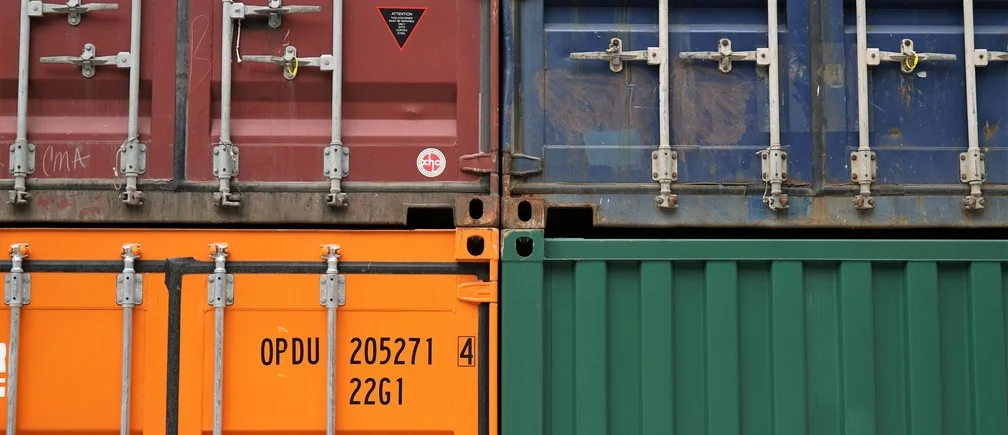I'll be honest. I'm intrigued but I'm still not entirely clear on how this can be used to enhance supply chain visibility for Customs and border processing. It's also not entirely clear yet how the trading community wants to implement this and how a Customs and Other Government Agencies will want to influence (if they should at all?).
The ASYCUDA Myth Part 1: Is UNCTAD fostering a No-Bid Sole Source Contract for ASYCUDA World? A CARICOM Case Study.
I ran into the following article today and could not help but see this news item paint a very clear picture of how the UNCTAD/ASYCUDA folks seed and then secure their deployments of ASYCUDA World. This article is an excellent case study to demonstrate how an Intergovernmental Organization (IGO) expands the footprint of their technology using secretariat and organizational leverage over a country member.
The WCO CTS Myth – Part 3: A Functional Comparison of the WCO CTS With Best Practices for Targeting and Selectivity
The WCO professes the CTS to be a complete, efficient, and effective solution. Based on this scorecard I’d say that’s a bit of an exaggeration and taken from the UNCTAD ASYCUDA Playbook discussed in Part 1 of the WCO CTS Myth.
They further describe it as user-friendly, simple, powerful, affordable, and sustainable. They say everything is required to implement and sustain an effective cargo manifest risk assessment solution. Like a technology vendor, they state they will provide the hardware, data assistance, training, support, maintenance. The WCO is suddenly discovering that software development can be difficult. As one example, they’ve only obtained 40% of the cargo data in some countries. That goes a long way from the full visibility needed at the border. (Maybe goods aren’t being smuggled in the other 60%?) ....
The WCO CTS Myth – Part 2: A Closer Look at the Pros and Cons of an IGO Targeting System
A good discussion followed Part 1 of The WCO CTS Myth. Access the PART 1 blog here. Part 2 will focus on the functions and integration methodology for the system. It sounds like the WCO thinks it is doing the right thing by building an entry level targeting system for it’s members who want one. There’s nothing overly nefarious here. The problem is, it puts the WCO in direct competition with the technology vendors....
The WCO CTS Myth - Part 1: Is the WCO Marketing with the ASYCUDA model?
The World Customs Organization (WCO) is blocking the technology providers from those countries who require and seek a robust risk management solution, by suggesting their Cargo Targeting System (CTS) as the only viable solution available. No market awareness or survey is provided. Sure -the WCO will point members to the TEN network or WCO IT Conference, but it’s clear to us that members are shown all roads lead to the CTS…. especially when they are told it makes them compliant with WCO SAFE....
Is a Valuation Database the Best Way for Customs Authorities to Address Revenue Threats?
Why Trade Facilitation Needs a U.N. based Open Source Solution (By David Hamilton)
David Hamilton is an International Trade Facilitation Consultant at Xalgorithms Foundation. His latest blog provides interesting insight and compares closed and open source source options for UN developed Trade systems such as ASYCUDA World. Right now the current closed source method limits the level of participation in designing solutions ultimately meant to provide access. How can we foster this change?
The Special Advice Jack Ma Can Give UNCTAD...
Alibaba’s Jack Ma was named UNCTAD’s Special Adviser on trade this week. Mr. Ma was quoted as follows; "It is an honor to serve as UNCTAD’s Special Adviser on Youth Entrepreneurship and Small Business," said Mr. Ma. "I have spent my career working with entrepreneurs and know the positive social and economic impact when people are given the opportunity to participate in the global economy."
Mr. Ma, we have a problem. UNCTAD is actually preventing my fellow entrepreneurs, start-ups, and technology firms (who build solutions for border processing and trade facilitation) from the opportunity to participate. In short, they have created a barrier to market entry. The playing field is not level.
Time to open-source ASYCUDA and CTS? (by IBM's Stewart Jeacocke)
Stewart Jeacocke is the Customs Leader from the IBM Center of Competence. He's promoting what is likely the best idea yet for the future of ASYCUDA and the WCO's CTS.
Customs Risk Management System Checklist - Compare Available Applications with 55 Functions
Through our market analysis and customer engagements, we have learned that many Customs administrations are not entirely clear on what systems are indeed available in the market, or how to compare those applications. We believe it's necessary to create a common and fair playing ground to compare the options, and TTEK is certainly prepared to be considered in any cross functional comparison. As such we've prepared a checklist to assist those customs administrations who seek a leading edge operational risk management solution. Our list includes 55 functions that you should be measuring when considering a risk management solution.
Contact us for more info or visit www.ttekglobal.com











